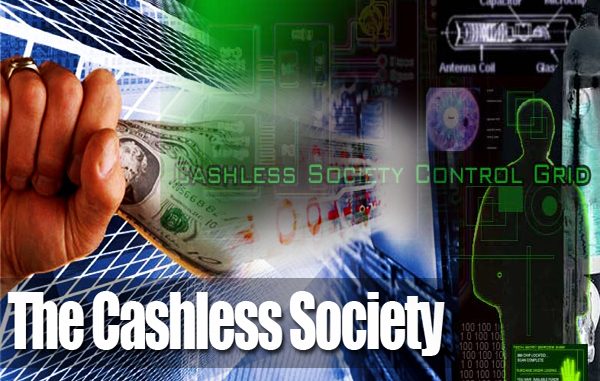
The Bank of Korea is aiming for a “cashless society” by 2020.
The bank’s officials plan to provide South Koreans with cards instead of coins, since consumers are increasingly becoming comfortable with cashless payments due to the prevalence of mobile wallets, smartphones and mobile banking.

BYPASS THE CENSORS
Sign up to get unfiltered news delivered straight to your inbox.
You can unsubscribe any time. By subscribing you agree to our Terms of Use
Latest Video
Koreans now carry less cash as it gives way to credit cards and fintech payments.
Now if a consumer were to purchase a 9,500 won item and pays cash using a 10,000 won banknote, the shopper would be credited 500 won to his or her prepaid card instead of getting a 500 won coin in change.
The Korea Times reports:
Korea is not the only country wanting to become cashless.
“A number of developed countries are turning to non-cash policies to enhance the effectiveness of their economic systems,” said Lee Hyo-chan, the head of the research center at the Credit Finance Institute. Sweden, which is one of the pioneers in this move, has a cash payment ratio around 20 percent, much lower than the global average of 75 percent. It restricts using cash for public transportation, and many banks do not handle cash. Some countries, mostly in Europe, ban using cash for large transactions, according to the institute.
The move comes from the expectation that a cashless society will partly solve the problem of the underground economy, according to Kwak Hyun-soo, an analyst at Shinhan Investment Corp.
“There are positive aspects of a cashless society,” he said. “It can open the underground economy, and thus enhance equivalence in taxation. The shoe box full of 50,000 won banknotes that you see in movies will disappear in reality (with the advancement of a cashless society).”
Based on a McKinsey report, Kwak estimates the cashless society will cut costs equivalent to between 0.1 and 1.1 percent of GDP. According to the consulting firm, countries where the ratio of payment in cash is below 50 percent were relatively transparent, with the shadow economy taking only 12 percent of gross domestic product (GDP). But countries where cash is used for over 80 percent of payments had the ratio surge to 32 percent of GDP.
On top of decreasing crimes where cash is involved, such as tax evasion, drug transactions and bribery, Lee says going cashless can help monetary policy. For example, some countries have adopted the minus interest rate to stimulate their economy, but it will not work if people continue holding cash in their safes. When cash becomes electronic, people will have to spend it to avoid losses from the minus interest rate.
“To accelerate the transition into a cashless society, there should be more tax benefits for non-cash transactions while increasing costs and burdens for those holding or managing cash,” Lee said.
The internet-only banks, to be launched by Kakao and KT, will also accelerate the cashless society. Following Apple Pay and Samsung Pay, LG Pay will be launched soon to replace wallets, and the competition is heating up, with diverse players jumping into the new payments market. Gartner, a U.S. IT research firm, expects the global mobile payments market to reach $720 billion 2017.
But the cashless society is not without side effects, according to Kwak. “If cash disappears from our hands, all of the monetary transactions will be done on the Internet. Just like freedom is accompanied by duty, convenience is followed by a cost called surveillance. The end of cash means the start of the ‘Big Brother’ era. At the core of the Big Brother era, of course, is IT.”


